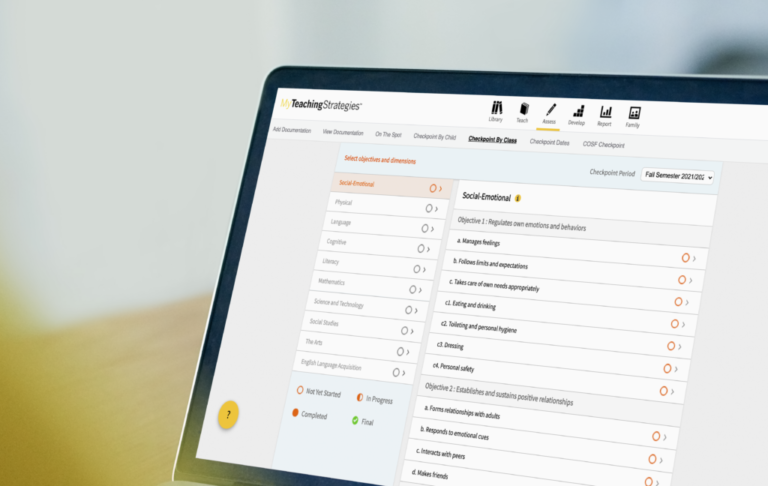Becoming a teacher in Spanish can be a fulfilling career choice for those who have a passion for teaching and a love for the language. It can also be a challenging and competitive field to enter, requiring specific education and certification requirements. In this article, we will explore the necessary steps to become a teacher in Spanish, the career path options, and the potential opportunities for growth in the field.
Table of Contents
Understanding the Role of a Teacher in Spanish

The role of a teacher in Spanish is to instruct students in the Spanish language and culture. This includes teaching grammar, vocabulary, pronunciation, and conversational skills. As a teacher in Spanish, you will need to be able to create lesson plans, assess student progress, and provide feedback on their language skills. You will also need to have strong communication skills, patience, and the ability to adapt to different learning styles.
Education and Certification Requirements to Become a Teacher in Spanish

To become a teacher in Spanish, you will need to meet certain education and certification requirements. The first step is to obtain a Bachelor’s degree in Spanish or a related field. This will provide you with the foundational knowledge of the language and culture necessary to teach others.
Once you have a Bachelor’s degree, you will need to obtain a teaching certification in Spanish. This may include completing a teacher education program, passing state exams, and fulfilling any other requirements set by your state’s department of education.
Types of Certification for Teachers in Spanish

There are several types of certification available for teachers in Spanish. The most common is the teaching certification, which is required by most states to teach in public schools. This certification typically requires completing a teacher education program, passing state exams, and fulfilling any other requirements set by your state’s department of education.
Another type of certification is the National Board Certification, which is a voluntary certification that demonstrates advanced teaching knowledge and skills. This certification can help you stand out in a competitive job market and may lead to higher pay or other career advancement opportunities.
Career Path for Teachers in Spanish
The career path for teachers in Spanish can vary depending on the type of teaching you are interested in pursuing. Some teachers may choose to teach in public schools, while others may choose to work in private schools, language academies, or as tutors.
As a teacher in Spanish, you may also have the opportunity to advance your career by pursuing leadership positions, such as becoming a department head or curriculum specialist. You may also have the opportunity to teach at the college or university level or to pursue a career in education administration.
Opportunities for Growth in the Field of Teaching Spanish
There are several opportunities for growth in the field of teaching Spanish. One of the most significant opportunities is to specialize in a specific area of Spanish, such as literature, linguistics, or cultural studies. This can help you stand out as an expert in your field and may lead to higher-paying job opportunities.
Another opportunity for growth is to pursue advanced degrees, such as a Master’s or Doctorate degree in Spanish or a related field. These degrees can open up new career paths, such as teaching at the college or university level or pursuing a career in research or academia.
Continuing Education Requirements for Teachers in Spanish
Continuing education is an essential aspect of the teaching profession, and teachers in Spanish are no exception. Most states require teachers to complete a certain number of continuing education credits each year to maintain their teaching certification. This may include attending conferences, and workshops, or taking additional coursework in Spanish or teaching methodologies.
Job Outlook and Salary for Teachers in Spanish
The job outlook for teachers in Spanish is positive, with the Bureau of Labor Statistics projecting a 10% job growth rate for high school teachers between 2020 and 2030. The demand for Spanish teachers is expected to remain high due to the increasing importance of Spanish language skills in today’s global economy.
According to the Bureau of Labor Statistics, the median annual salary for high school teachers in 2020 was $62,870. However, this can vary depending on the level of education, experience, and location. Private school teachers may earn higher salaries, while those working in urban areas may earn more due to the higher cost of living.
Tips for Success as a Teacher in Spanish
To be successful as a teacher in Spanish, there are several tips to keep in mind. First and foremost, it is essential to have a passion for the language and culture. This will help you stay motivated and engaged in your teaching.
It is also important to be patient with your students and to tailor your teaching to their individual learning styles and e-learning solutions. This may require adapting your lesson plans or providing additional support to students who may be struggling.
Finally, it is important to stay up-to-date with the latest teaching methodologies and technology. This can help you stay relevant in a constantly evolving field and provide your students with the best possible education.
Resources for Teachers in Spanish
There are several resources available for teachers in Spanish, including professional organizations, online communities, and educational websites. These resources can provide support, networking opportunities, and access to the latest teaching tools and resources.
Some examples of professional organizations for teachers in Spanish include the American Association of Teachers of Spanish and Portuguese and the National Association of Bilingual Education. Online communities such as Reddit’s r/SpanishTeachers can also be a valuable resource for connecting with other teachers and sharing ideas.
Conclusion
Becoming a teacher in Spanish can be a rewarding and fulfilling career choice, but it requires dedication and hard work. By obtaining the necessary education and certification, pursuing opportunities for growth, and staying up-to-date with the latest teaching methodologies and technology, you can build a successful career in this field. Remember to stay passionate, patient, and adaptable, and you will be well on your way to becoming a successful teacher in Spanish.









